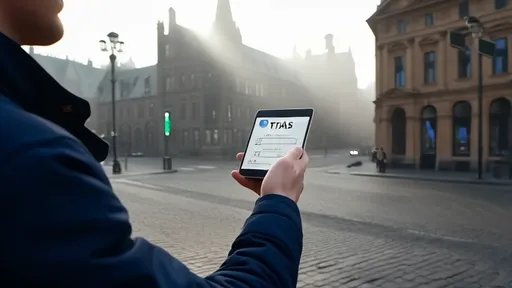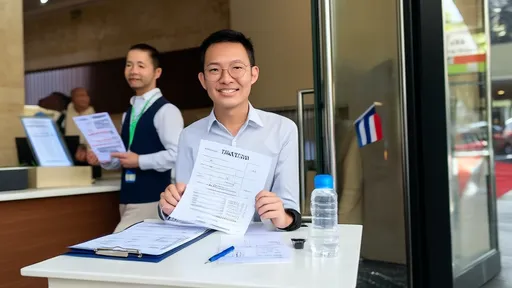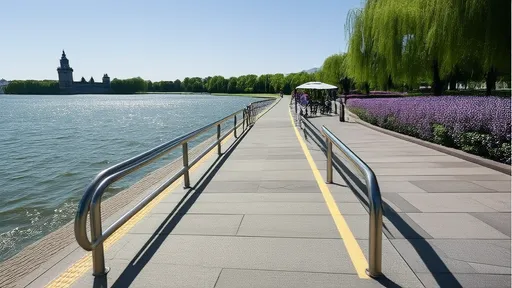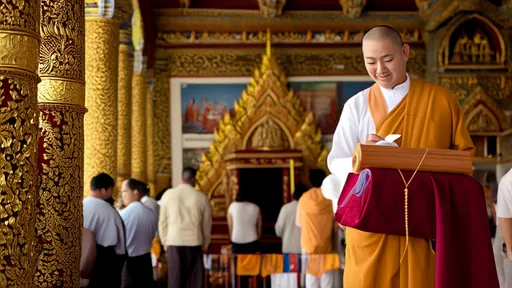The recent implementation of Thailand's visa-free policy for select nationalities has sparked considerable interest among travelers. For those eligible, the opportunity to stay for up to 30 days without the hassle of obtaining a visa beforehand has been a game-changer. The policy, aimed at boosting tourism and simplifying entry procedures, has already seen a surge in arrivals. But how does it work in practice? Feedback from early adopters provides valuable insights into the realities of this new travel convenience.
Arrival and Immigration Procedures
Upon landing at major Thai airports such as Suvarnabhumi or Don Mueang, travelers from visa-exempt countries are directed to the same immigration counters as those with pre-approved visas. The process is straightforward: present a valid passport with at least six months of validity, and ensure you have proof of onward travel within the 30-day window. Immigration officers typically ask minimal questions, focusing instead on verifying passport details and ensuring compliance with entry requirements. Most travelers report clearance times of under 30 minutes, though peak hours can see longer waits.
Those entering via land borders, such as from Malaysia or Laos, note slightly more scrutiny. Officers at these crossings often request additional documentation, including hotel bookings or evidence of sufficient funds. While not universally enforced, carrying these documents can prevent unnecessary delays. The overall consensus is that the visa-free entry is seamless for air travelers but requires slightly more preparation for those arriving overland.
Extending the 30-Day Stay
One common question among visitors is whether the initial 30-day stay can be extended. The answer is yes, but with caveats. Travelers can apply for a 30-day extension at local immigration offices, provided they meet certain conditions. The process involves submitting an application form, a passport-sized photo, and a fee of 1,900 baht. However, approval isn't guaranteed, and officers may deny extensions if they suspect the applicant is attempting to live in Thailand long-term without the proper visa.
Feedback highlights that extensions are more likely to be granted in tourist-heavy areas like Bangkok, Chiang Mai, or Phuket, where immigration offices are accustomed to handling such requests. In smaller towns, officers may be less familiar with the procedure, leading to inconsistent outcomes. Some travelers recommend hiring a local agent to navigate the process, though this incurs additional costs.
Challenges and Considerations
While the visa-free policy is undoubtedly a boon for short-term visitors, it isn't without its challenges. Overstaying, even by a single day, results in a fine of 500 baht per day, with a maximum penalty of 20,000 baht. More seriously, repeat offenders or those overstaying by extended periods may face bans from re-entering Thailand. Travelers are advised to set reminders for their departure date to avoid accidental overstays.
Another consideration is the lack of clarity around multiple entries. The visa-free policy technically allows for unlimited entries, but immigration officers may question frequent border runs, especially if they suspect the traveler is attempting to live in Thailand indefinitely. Those planning to leave and re-enter multiple times should be prepared to explain their travel plans or consider applying for a proper visa instead.
Impact on Tourism and Local Economy
Early indicators suggest the visa-free policy is having a positive effect on Thailand's tourism sector. Hotels, tour operators, and restaurants in popular destinations report increased bookings, particularly from nationalities newly eligible for visa-free entry. The convenience of spontaneous travel has also led to a rise in last-minute bookings, benefiting smaller businesses that rely on foot traffic.
However, some locals express concerns about overcrowding in already busy areas. The ease of entry has led to a surge in short-term visitors, straining infrastructure in places like Pattaya and Krabi. Authorities are monitoring the situation closely, balancing the economic benefits against the need to maintain quality of life for residents.
Final Thoughts
Thailand's visa-free policy represents a significant step toward revitalizing its tourism industry post-pandemic. For travelers, it offers unparalleled convenience, eliminating the need for advance paperwork and fees. The 30-day stay provides ample time to explore the country's diverse attractions, from bustling cities to serene beaches. While minor challenges exist, particularly around extensions and overland entries, the overall experience is overwhelmingly positive. As the policy matures, further refinements may address current pain points, solidifying Thailand's position as a top global destination.

By /Jul 25, 2025

By /Jul 25, 2025

By /Jul 25, 2025

By /Jul 25, 2025

By /Jul 25, 2025

By /Jul 25, 2025

By /Jul 25, 2025

By /Jul 25, 2025

By /Jul 25, 2025

By /Jul 25, 2025

By /Jul 25, 2025

By /Jul 25, 2025

By /Jul 25, 2025

By /Jul 25, 2025

By /Jul 25, 2025

By /Jul 25, 2025

By /Jul 25, 2025

By /Jul 25, 2025

By /Jul 25, 2025

By /Jul 25, 2025